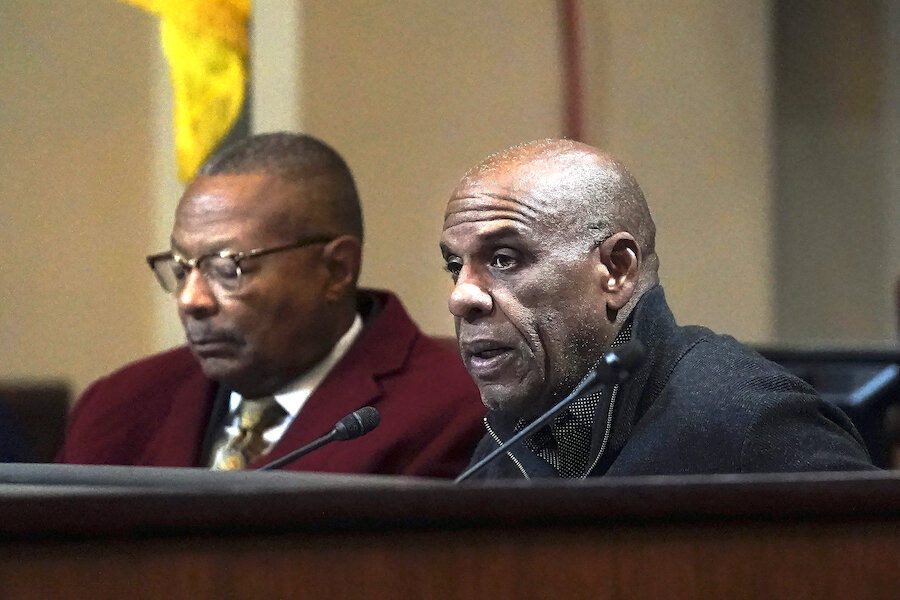Self-repair as prelude to reparations
Loading...
California will soon join a long list of places contemplating one way to repair their societies from a brutal past – with cash payments. A task force set up in 2020 to recommend how the state can compensate Black residents for generations of discriminatory harm will send its final report by July 1. The state Legislature may want to see first how other places, either with a legacy of slavery or recent mass violence against civilians, have succeeded in trying to set up a reparation program or actually delivered on one.
Not many, according to scholars of transitional justice. Which helps explain why Gov. Gavin Newsom, in reacting to the task force’s preliminary findings in May, downplayed the role of money. “Dealing with the legacy of slavery is about much more than cash payments,” Mr. Newsom said.
In many places where people still struggle for reparations as a quick correction for past abuse, the emphasis has been on what is called self-repair. As Pedro Welch, a descendant of a formerly enslaved people in Barbados told the Monitor, “We as individuals can seek self-reparations – through genealogy and the reconstitution of families, reconnecting with our history, repairing trauma.”
“We can declare we are free,” he said, a spiritual exercise which may help solve one problem with reparations. A person’s mental liberation from a harmful legacy can lift the stigma of victimhood implied by a government selecting those deserving of reparations. It reaffirms one’s dignity and moral agency, perhaps evoking similar self-reflection among those who have benefited from past discrimination.
“We have to work on that mental, spiritual, emotional liberation of ourselves,” Zakiya Uzoma-Wadada, head of the Emancipation Support Committee in the former British colony of Trinidad and Tobago, told a local newspaper. Reparations, she says, are more than payment. They include emancipation from mental bondage.
Two scholars of reparations, Luke Moffett and Sunneva Gilmore, even suggest that monetary reparations cannot bring healing unless society reframes the notion of a “sick victim” needing state intervention. “We suggest that victims find their own way to live with the past as they await reparations, through ‘self-repair’ measures,” they wrote in the Journal of Law and Society.
For governments weighing reparations – such as in California – the two scholars recommend an appreciation for “the different paths down which victims can go to get themselves to the position that they were in before the harm or wish to be in afterwards.”







